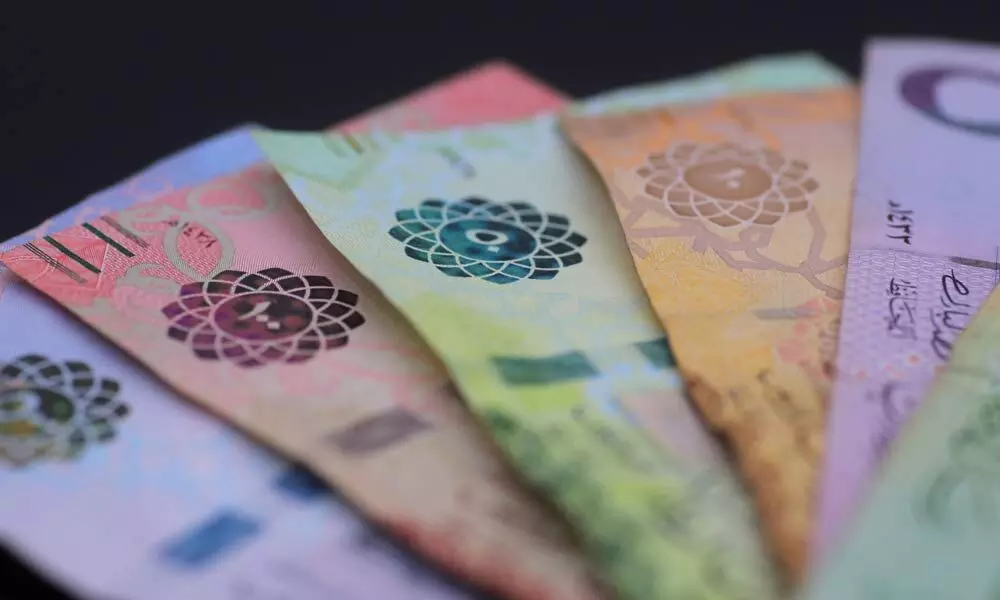Want to reduce Gulf Arab reliance on oil? Try universal income
Even before the pandemic struck, the International Monetary Fund (IMF) projected that the Gulf’s $2 trillion wealth would be exhausted by 2034. Countries will find it increasingly hard to finance their budgets and maintain their currency pegs to the dollar. Slower public-sector job creation could stoke popular anger
image for illustrative purpose

A universal income for citizens could help governments smoothen the transition to a post-oil world
Countries in the Gulf Cooperation Council (GCC) have built their economies, societies and political systems around oil. These are at a growing risk of disruption as crude's importance in the global economy diminishes and declining prices. A universal income for citizens could help governments smooth the transition to a post-oil world.
Oil is central to the social contract in the Gulf. Petrodollars provide the lion's share of government revenues, allowing rulers to keep taxes low. The Gulf monarchies provide citizens with cushy, and usually unproductive, public-sector jobs as a way to distribute oil rents - and to compensate for limited political representation.
This has a damaging knock-on effect on private companies by making local talent expensive, just when they are coming under pressure from governments to trim expats from their payrolls. High wages and low productivity cause most goods and services produced in the Gulf to be more costly than elsewhere, thwarting efforts to diversify production away from the extraction of hydrocarbons.
Still, this arrangement, with oil at the heart of the political economy, has served the region well. Standards of living have risen: The GCC is comfortably in the top third of the global income-per-capita distribution. Oil has also financed the upgrade of physical infrastructure.
But oil prices are unlikely to remain high enough to sustain the status quo for very much longer. Environmental concerns are shifting energy demand away from crude toward cleaner sources. Technology is speeding up the transition, while also making the supply of crude more abundant.
It might seem odd to prophesy the demise of oil when prices are hovering around $70 per barrel. But these values are supported by OPEC+ continuing to withhold of seven per cent of global supply. On the demand side, consumption will probably peak in the next 10-20 years, if not sooner.
Even before the pandemic struck, the International Monetary Fund (IMF) projected that the Gulf's $2 trillion wealth would be exhausted by 2034. Countries will find it increasingly hard to finance their budgets and maintain their currency pegs to the dollar. Slower public-sector job creation could stoke popular anger.
Attempts to wean GCC economies away from their overwhelming dependence on oil have thus far had only limited success. Governments have announced several 'visions' and strategies, all with economic diversification at their heart. But these have fallen short of their targets.
A simpler, more workable solution to the problem is the concept of a universal income: Instead of hiring people in unproductive government jobs, authorities would make unconditional monthly payments to all adult citizens, regardless of employment status, wealth or gender. The idea has also been proposed by Steffen Hertog of the London School of Economics, and Ali Al-Salim, a Gulf-based investor.
Universal income is superior to the current arrangement for several reasons. First, by taking away the option of public-sector employment, governments would effectively push citizens into more productive jobs in the private sector. Companies would be able to lower their salaries, while containing the impact on the lifestyles of their employees, since the monthly supplement from the government would top up their incomes.
Second, the lowering of overall wages would reduce the cost of goods and services produced in the Gulf States, making them more competitive. This would increase their appeal both domestically and abroad, helping the economies diversify away from mere hydrocarbon production. This is a less disruptive way of reducing costs and gaining competitiveness than the alternative of adjusting the currency pegs, which have been in place for decades.
Finally, a universal income would provide a fairer and more transparent distribution of the oil windfall. The current system favours older citizens, who were hired during the commodity boom years. With governments unable to create new public-sector jobs, younger citizens face a higher unemployment rate. In some Gulf countries, this has already led to protests.
How would countries finance their universal-income schemes? Mainly through reducing the public-sector wage bill. Governments could also use the savings from phasing out other benefits, such as energy subsidies.
For example, in Saudi Arabia, where nearly half of all jobs held by citizens are in the public sector, the government spends $131 billion a year on salaries. Halving the State payroll would generate savings enough to pay each of the 14 million Saudi adults a monthly grant of about $400, while still leaving the ratio of public-sector jobs to total employment higher than in most rich countries. People taken off the public payroll can try to find private-sector jobs, engage in entrepreneurial activities or live off the monthly check from the government.
The value of the monthly stipend would differ across the GCC depending on the oil wealth of each country and the size of its population. Individual governments would have to decide whether to pay just enough to cover basic needs, or allow for a little luxury.
Since universal income would be linked to hydrocarbon revenues, it will not indefinitely shield individuals from the decline in crude prices. If prices crash, governments won't be able to finance the monthly stipends - but in such a scenario, they would not have been able to pay public-sector salaries, either. That has already happened in neighbouring Iraq.
In the short-term, a universal income would make for a less distortive distribution of wealth; and in the long-term, it should provide the GCC States a path out of oil dependence. (Bloomberg)

